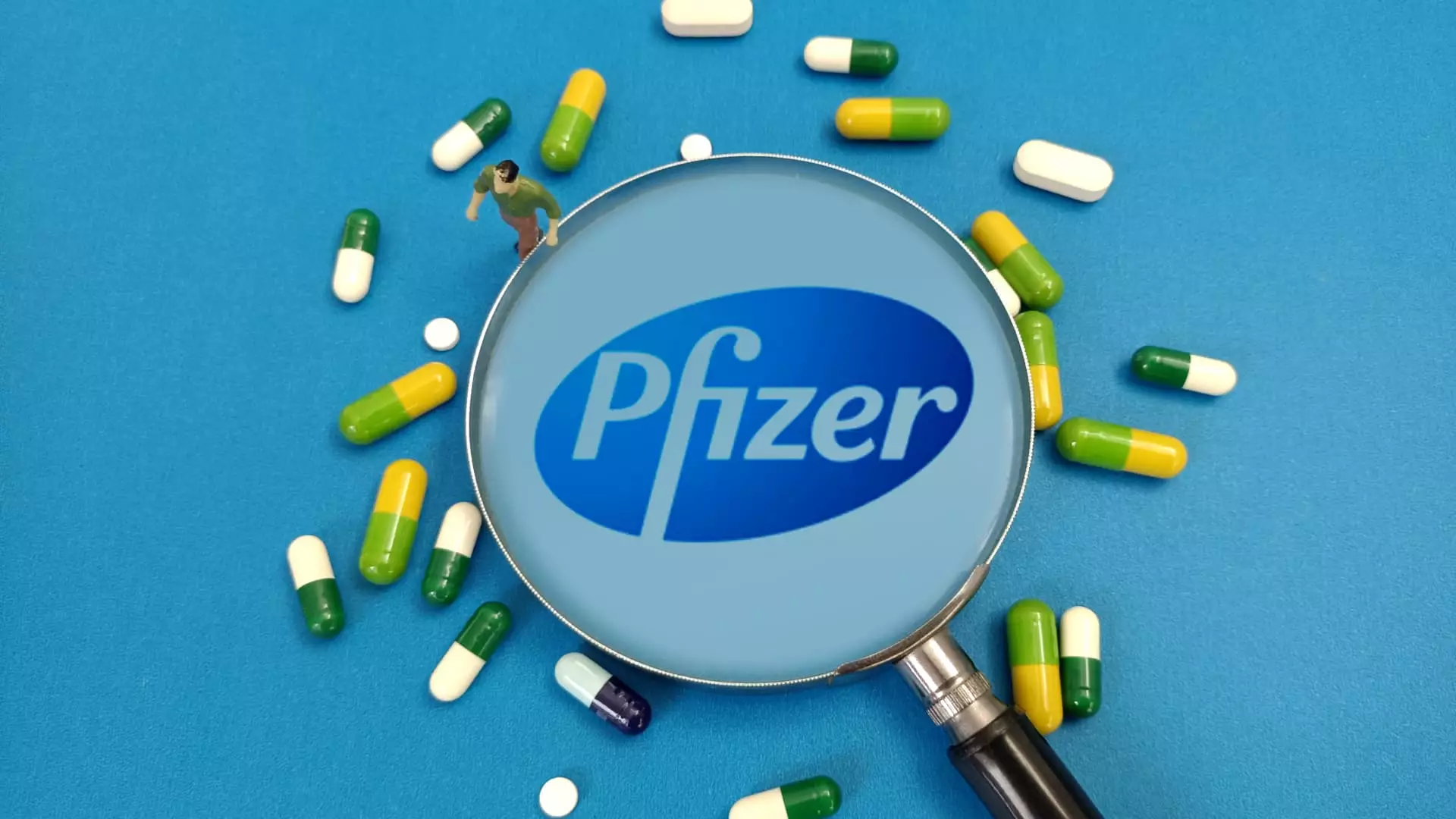Pfizer’s groundbreaking drug, Lorbrena, has demonstrated revolutionary progress in the treatment of advanced non-small cell lung cancer. Recent long-term results from a late-stage trial have showcased the drug’s ability to significantly extend the lifespan of patients while preventing the progression of cancer. With a remarkable data showing that most individuals experienced positive outcomes for over five years, Pfizer is on the verge of establishing Lorbrena as the new gold standard for treating this aggressive form of lung cancer.
Lorbrena’s approval in the U.S. for patients with advanced non-small cell lung cancer who have the ALK gene mutation has opened doors for approximately 72,000 individuals diagnosed with this specific form of cancer globally each year. The rarity of this particular mutation accentuates the significance of Lorbrena’s role in combating an otherwise challenging disease, especially among younger individuals. As an ALK inhibitor, Lorbrena is a beacon of hope for those battling this aggressive variant of lung cancer.
Despite Lorbrena’s current position as a first-line treatment for non-small cell lung cancer, Pfizer is confident that the recent five-year data will elevate the drug to the forefront of standard care. Chris Boshoff, Pfizer’s chief oncology officer, emphasized the importance of administering the most effective treatment upfront to maximize patient outcomes. The promise of Lorbrena becoming the preferred first-line therapy for ALK-positive lung cancer is a defining moment in the realm of oncology.
The remarkable findings from the five-year trial have exceeded expectations in the medical community. Noteworthy data indicates that Lorbrena significantly outperformed Pfizer’s older lung cancer drug, Xalkori, with an 81% reduction in the risk of cancer progression or death. The durable progression-free survival outcomes observed with Lorbrena have set a new benchmark in the treatment landscape, surpassing the efficacy of existing drug options for ALK-positive lung cancer.
Lung cancers with ALK mutations are known for their propensity to spread to the brain, leading to devastating consequences for patients. Lorbrena’s ability to slash the risk of brain metastases by 94% compared to Xalkori underscores its efficacy in preventing and treating metastatic disease. Furthermore, Lorbrena’s capacity to penetrate the blood-brain barrier distinguishes it as a potent therapy for combatting brain progression in ALK-positive lung cancer.
The absence of new safety concerns associated with Lorbrena highlights its favorable risk-benefit profile in the treatment landscape. Despite some reported side effects such as swelling and cognitive changes, Lorbrena’s overall safety profile remains positive. Educating physicians on effectively managing these side effects will be crucial in optimizing patient care and ensuring the successful integration of Lorbrena as a first-line therapy for advanced non-small cell lung cancer.
Pfizer’s continued efforts to advance the standard of care in lung cancer treatment through innovative drugs like Lorbrena are paving the way for a brighter future for patients with advanced disease. The transformative impact of Lorbrena’s long-term results underscores the potential for a paradigm shift in the treatment approach for ALK-positive lung cancer, offering renewed hope and improved outcomes for individuals battling this challenging condition.

